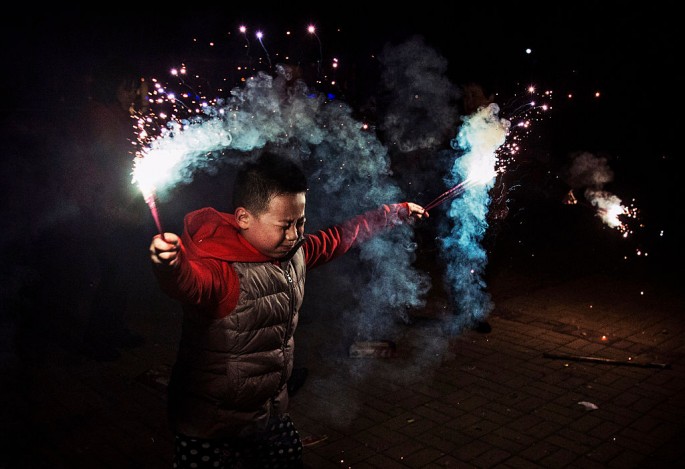From Feb. 7 through Feb. 11 and on Feb. 22, all Shanghai police officers were instructed to patrol the city's heavily populated streets. Their duty begins at 4 p.m. and ends at 7 a.m. in a bid to prevent residents from lighting fireworks.
The city would deploy 20,000 cops for the Chinese Lunar New Year on Feb. 8, reported Shanghaidaily. Besides enforcing the ban on firecrackers - a Chinese tradition - the officers are also supposed to keep China's financial hub safe and clean.
The prohibition on lighting firecrackers, believed to ward of bad luck because of the noise created by the explosives, started as early as Jan. 1, implemented on the Outer Ring Road all days and the rest of the city on days that are heavily polluted.
Because of the city's large population, which 20,000 policemen could not handle, 260,000 city residents volunteered to help the law enforcers and promote safety awareness by tag reporting to authorities selling and lighting of fireworks. However, despite the ban on firecrackers, 40 percent of 2,500 people surveyed by the Shanghai Statistics Bureau still want to purchase the explosives for the Spring Festival.
The strict implementation of the ban has resulted in 81 people prevented from lighting the fireworks that were confiscated. A total of 14,155 boxes have been seized and 232,900 yuan ($35,400) fines have been collected from violators of the ban.
By enforcing a strict ban during the biggest holiday in China, the city government hopes to change residents' attitude toward fireworks lighting, said Jiang Ping, party secretary of the Shanghai Political and Law Commission.
The ban aims to prevent increasing the level of PM2.5, fine particles with a diameter of 2.5 micrometers or less, in the city air. Besides the smog it creates, fireworks lit on the eve of the New Year also create heaps of ashes and leftover trash on the streets by partying Shanghai residents.



























